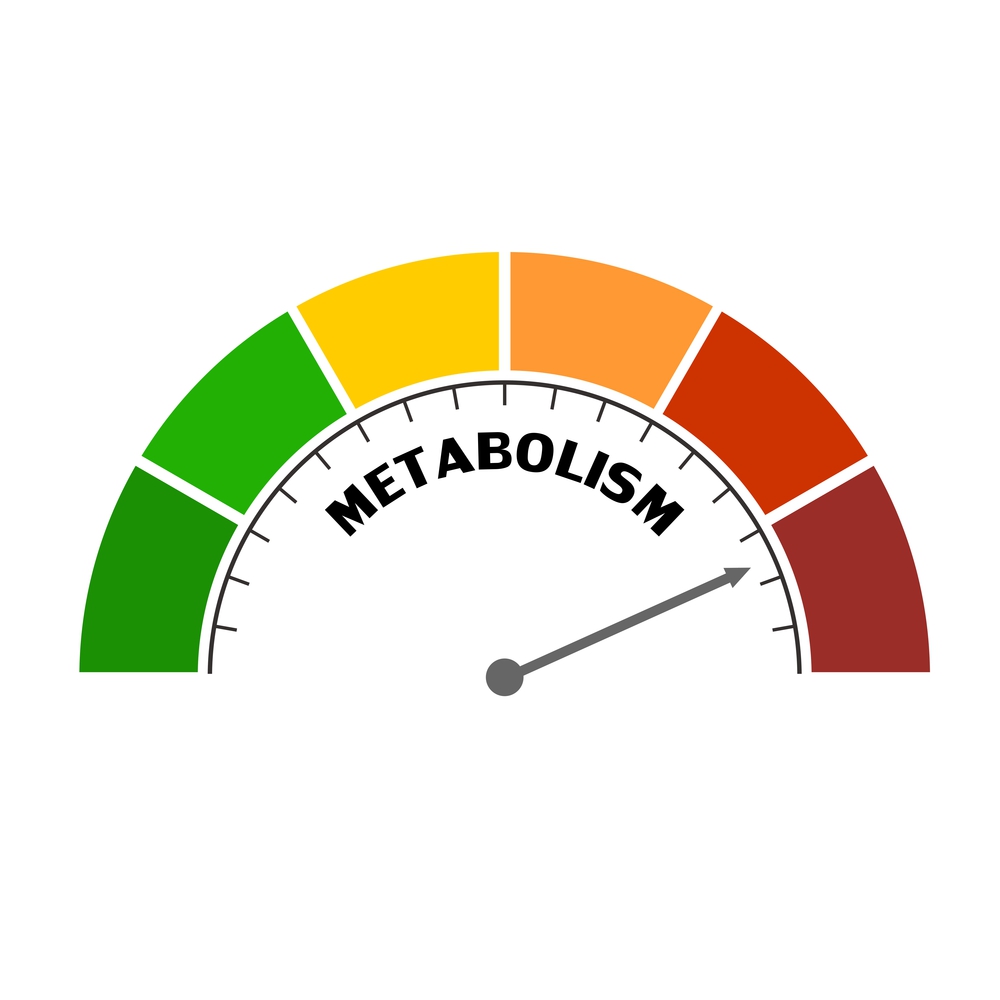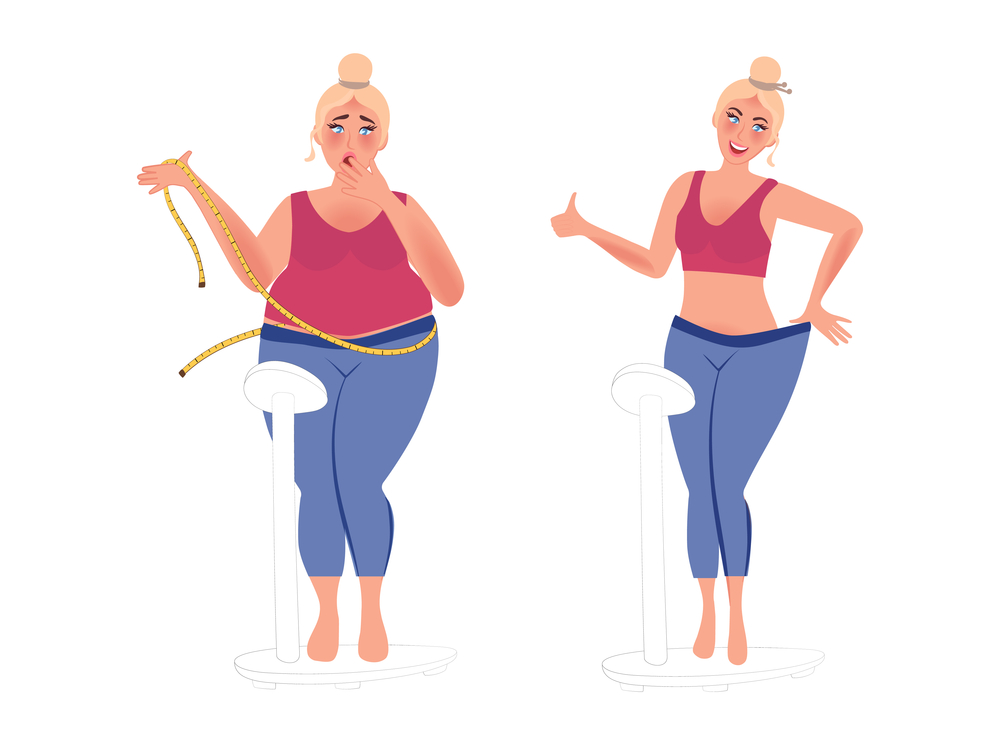Dark Side of Rapid Weight Loss. In the quest for a slimmer, healthier self, many embark on the path of rapid weight loss, often lured by the promise of quick results. However, beneath the shiny veneer of a smaller waistline lies a series of hidden downsides that every dieter must understand. While the appeal of shedding pounds swiftly is undeniable, understanding the long-term consequences can help you make informed decisions and prioritize your overall well-being.
The Impact on Your Metabolism
Dark Side of Rapid Weight Loss
When you drastically cut calories, your body perceives it as a threat. It reacts by slowing down your metabolic rate to conserve energy, a phenomenon known as metabolic adaptation or “starvation mode.” While this evolutionary response was beneficial for our ancestors during times of famine, it poses challenges for modern dieters. A slower metabolism means fewer calories burned at rest, making further weight loss more difficult. Worse, when regular eating resumes, the body often stores excess calories as fat, leading to rapid weight regain—a frustrating cycle for many individuals.

Loss of Muscle Mass
Dark Side of Rapid Weight Loss
Dark Side of Rapid Weight Loss/ The goal of any weight loss journey is to lose fat while preserving lean body mass. Unfortunately, rapid weight loss often results in a significant loss of muscle mass. Muscles are metabolically active tissues, meaning they help burn calories even when you’re at rest. Losing muscle reduces your metabolic rate further, compounding the challenges of maintaining weight loss. Beyond the metabolic effects, muscle loss can decrease strength, endurance, and physical health. Incorporating resistance training and ensuring adequate protein intake are essential strategies for preserving muscle during weight loss.

Nutritional Deficiencies
Extreme calorie restriction or the exclusion of entire food groups in the pursuit of rapid weight loss can lead to nutrient deficiencies. Essential vitamins and minerals are critical for maintaining bodily functions, and their absence can manifest in various symptoms. Fatigue, dizziness, hair loss, and compromised immunity are just a few of the potential consequences. Over time, these deficiencies can result in more severe health issues, such as osteoporosis due to a lack of calcium or iron-deficiency anemia. Ensuring that your diet is balanced and includes a variety of nutrient-dense foods is vital for avoiding these pitfalls.

Psychological Effects
Dark Side of Rapid Weight Loss
The psychological toll of rapid weight loss should not be underestimated. Strict diets often require a level of discipline that can lead to stress and anxiety. For some, this pressure can trigger disordered eating patterns, such as binge eating or an unhealthy obsession with calorie counting. Feelings of guilt or shame can emerge when deviations from the plan occur, potentially leading to a negative relationship with food. These emotional challenges can extend beyond the diet, impacting mental health and overall well-being. Prioritizing a healthy, balanced approach can help foster a positive mindset around food and self-image.

Sustainability Challenges
One of the most significant drawbacks of rapid weight loss is its lack of sustainability. Quick fixes, such as fad diets or extreme caloric deficits, rarely address the underlying habits and behaviors contributing to weight gain. If we don’t address these root causes, people may get stuck in a cycle of “yo-yo dieting.” This means they lose weight and then gain it back over and over. This pattern can have profound implications for physical health, including an increased risk of heart disease, diabetes, and other chronic conditions. Sustainable weight loss involves gradual changes that are easier to maintain long-term, fostering a healthier relationship with food and lifestyle choices.
The Role of Physical and Mental Health
Dark Side of Rapid Weight Loss. Rapid weight loss often comes at the expense of physical and mental health. The body’s natural balance is disrupted, potentially leading to hormonal imbalances, weakened immunity, and even organ stress in extreme cases. Simultaneously, the mental strain of adhering to a restrictive diet can lead to burnout, depression, or feelings of inadequacy. A holistic approach that considers physical and emotional well-being is crucial for achieving and maintaining a healthy weight.
A Balanced Approach to Weight Loss
So, what’s the alternative to rapid weight loss? Adopting a balanced, sustainable approach that respects your body’s needs is the answer. Here are some key strategies:
- Set Realistic Goals: Aim for a gradual weight loss of 1-2 pounds weekly. This pace is more manageable and less likely to result in muscle loss or metabolic slowdown.
- Prioritize Nutrition: Focus on a diet rich in whole, nutrient-dense foods, including fruits, vegetables, lean proteins, whole grains, and healthy fats. Avoid extreme restrictions that eliminate entire food groups.
- Incorporate Physical Activity: Regular exercise, including cardiovascular activities and resistance training, supports weight loss while preserving muscle mass and boosting overall health.
- Stay Hydrated: Drinking enough water is essential for optimal body function and can help manage hunger cues.
- Seek Professional Guidance: Consulting a healthcare provider, dietitian, or nutritionist can provide personalized advice and support tailored to your needs and goals.
- Address Behavioral Patterns: Identify and work on the habits and triggers contributing to unhealthy eating behaviors. Mindfulness practices and therapy can be helpful tools.
The Importance of Patience
Patience is valuable in weight loss in a world that often glorifies instant gratification. The journey to a healthier self is not a race but a marathon. By focusing on gradual, sustainable changes, you’ll achieve your weight goals and improve your overall health and quality of life.
Conclusion
Dark Side of Rapid Weight Loss. While the lure of rapid weight loss may seem appealing, the hidden downsides underscore the importance of a balanced approach. From metabolic slowdown and muscle loss to nutritional deficiencies and psychological stress, the risks associated with quick fixes far outweigh the short-term benefits. By embracing sustainable strategies and seeking professional guidance, you can achieve a healthy weight without compromising your physical and mental well-being. Remember, proper health is a lifelong commitment, and the best results come from respecting and nurturing your body every step of the way.


